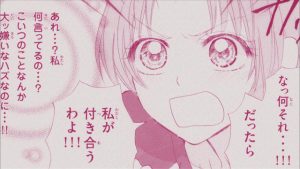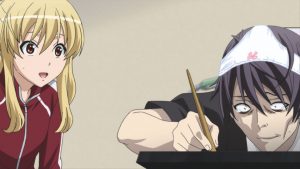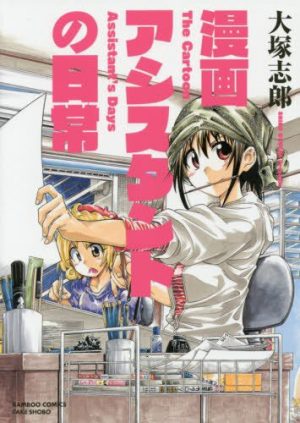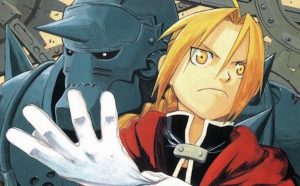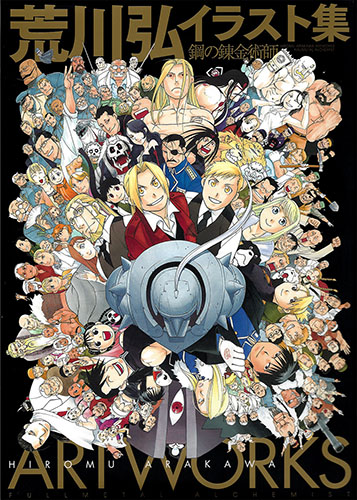
Everyone has to start somewhere, but it’s hard sometimes to imagine where some of our favourite mangaka came from. To loyal readers and fans, they have always been big, famous names. But every mangaka has to start somewhere, even ones as famous as Hiromi Arakawa! Best known as the mind behind the internationally famous Fullmetal Alchemist, Arakawa has had a great career. She’s one of the most successful female mangaka in the industry, and most manga fans recognise her name immediately. Plus her fans are not just women, but men as well. Arakawa’s fan-base is actually very diverse, with people of all ages, genders, nationalities, and walks of life enjoying her stories.
Of course, it wasn’t always like that for Hiromi Arakawa. Like any mangaka, she had to break into the world of manga first and get her work out there. So how did Hiromi Arakawa becomes a mangaka? Where did she come from, and what was her life before she was the famous name we now know? You may be surprised to see how her life began because it’s certainly an unexpected background. Plus, Arakawa has had a far smaller amount of manga published than other mangaka but is one of the most famous names, anyway. Why? Read on to find out!
A Humble Start

Hiromi Arakawa didn’t grow up in the big city, but rather on a dairy farm in Hokkaido, Japan’s cold northern island. She had a big family, with three older sisters and one younger brother. Even as a child, Arakawa knew that she wanted to become an artist. In elementary school, she used to doodle all over her notebooks as she practised her skills and did what she loved. When she finished high school, though, she wasn’t yet able to pursue a life as a full-time artist. Instead, she worked on her parents’ farm for another seven years and took oil painting classes about once a month.
All this time, though, Hiromi Arakawa was more than just a farmer who likes to draw. Whenever she could, she was creating doujinshi, or fan-made comics, of her favourite works. She also drew yonkama, which are short four-panel comics, for a magazine. It wasn’t until 1999 when Arakawa was 26 years old that she moved to Tokyo to become a mangaka. Of course, she didn’t just become one overnight. She began her career as an assistant to the already established mangaka Hiroyuki Eto. It can be challenging for someone just beginning their career in the second half of their 20s, especially in the 1990s, but Arakawa didn’t let that discourage her.
The Big Breakthrough
Luckily for fans of her work, Hiromi Arakawa didn’t let anything stop her! Her first big breakthrough as a solo mangaka came when she published a story called Stray Dog in the magazine Monthly Shōnen Gangan in 1999. Stray Dog went on to be an award-winner and helped get Arakawa’s name out there when she really needed it. Publishing short stories or single chapters in these sorts of serial magazines are how many mangaka get started because it lets them make a small first impression on the manga world and open a lot of doors.
For Hiromi Arakawa, Monthly Shōnen Gangan did exactly that. After her success with Stray Dog as an unknown mangaka, she went on to continue to publish Shanghai Yōmakikai one chapter a month in the same magazine in 2000. She began to get a small fanbase, and the publisher of Monthly Shōnen Gangan, Square Enix, was taking note of her success. Finally, in July of 2001, Hiromi Arakawa published the first chapter of Fullmetal Alchemist in Monthly Shōnen Gangan. No one was ready for the success that the series would bring, and the fame it would give Hiromi Arakawa as a mangaka.
The Rest is History
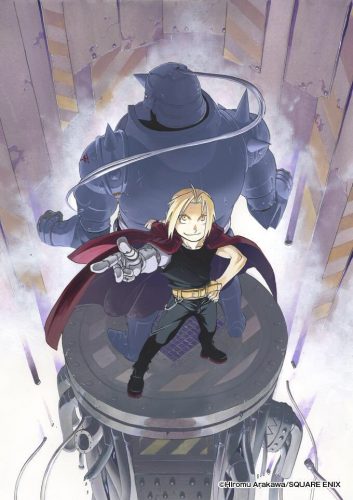
Fullmetal Alchemist went on to have 108 chapters and two separate anime series, both of which Hiromi Arakawa helped in some way. The series also went on to win a lot of awards and has found success both inside of Japan and abroad. The original series actually came out before the manga was even close to complete, so while Arakawa worked on the beginning of the anime, the ending was quite different from what she had planned for the manga. After more of the Fullmetal Alchemist manga had been published, Fullmetal Alchemist: Brotherhood was announced. This allowed the new anime series to follow the manga much more closely. Working alongside Arakawa, the animators were able to make the anime end at almost the same time as the manga, and with a much more similar ending the second time around. Fullmetal Alchemist fans will argue forever over which series is better.
Some may say that Hiromi Arakawa was lucky in her career as a mangaka because she found success and fame so early with only her third published work. Other mangaka work their entire lives publishing in serial magazines and never reaching fame. But of course luck has nothing to do with it; Hiromi Arakawa got to where she is through hard work, and talent. The art world always has a little bit of luck involved in success, but Arakawa cannot be simply written off as “lucky.” Her works are too famous and too well-renowned for her success to be down to only luck!
The reality is that Hiromi Arakawa is an incredible storyteller, and was able to show that to the world early on in her career through Fullmetal Alchemist. She has gone on to write other successful manga as well, including The Heroic Legend of Arslan, and a more realistic story called Silver Spoon that also became a best-seller through Weekly Shōnen Sunday. Arakawa is able to focus on her work by keeping a strong line between her work and personal life. She keeps her private life mostly to herself and doesn’t let it affect her writing. Through this balance, Arakawa has continued to find success in the manga industry.
Using her writing ability to write unique and diverse stories, Hiromi Arakawa has managed to build an equally diverse fan-base. She has fans from several different genres of manga, and also loyal fans that follow her regardless of what she is writing simply because they always like her voice and characters. Arakawa has also written under the male penname Hiromu Arakawa, which she originally used hoping to sell her manga to male fans she felt might be put off by a female author. Luckily, she has since been accepted as both a woman and a great mangaka, and most fans know that even under the name of Hiromu, she is a female. And of course, they’re fine with that! After all, it’s her stories that count, and Arakawa has more than proven herself as a storyteller
Final Thoughts
Hiromi Arakawa may not have written a lot of manga, but her name is still one of the most famous in the current manga world. Her career has focused on quality over quantity, and instead of writing a lot of stories, she has written a few very successful ones. Though Arakawa came from humble beginnings as a farm girl in a remote part of Japan, and though her career as a mangaka didn’t start until her late 20s, nothing has stood in the way of her success since. She never let herself get discouraged, and continued to pursue her dream of being a mangaka no matter how long it took.
And look at her now; through determination and talent, Hiromi Arakawa has given the world one of its most memorable manga in Fullmetal Alchemist. And her career isn’t over yet! Only time will tell what other great manga Arakawa will bring us, and all of her loyal fans will be patiently waiting for what is sure to be more quality work in the future.
Are you a fan of Hiromi Arakawa’s work? What do you think of her “rags to riches” story? Are there other mangaka that you would like to see a similar article written about? Drop us a comment below!
[PR_honeys title="Honeys Anime Recommends!" text="Hiromi Arakawa became a star and she worked very hard to do so. It's not easy, but Honey's Anime has got you covered. If you are wanting to improve your own manga, organization, art skills, direction, or more, we recommend the “Manga Drawing / Comprehensive Course” from Manabi Journey. The course has produced over 100 professional manga artists in Japan. With complete support in English while learning from the professionals, you can put your mind at ease and your pen to work! Check it out by clicking on the banner below!" url="https://tour.manabijourney.jp/mangadrawing//?utm_source=honeysanime&utm_medium=banner700x200&utm_content=inside-single&utm_campaign=manabijourney-mangadrawing-comprehensive2" onclick="ga('send', 'event', 'link_external', 'click', 'to_manabi_journey_manga_comprehensive2@single_pr');" img=' ']
']
Recommended Post
Where to Take a Manga Drawing Class?
Recommended Post
How to Organise a Manga?
Recommended Post
What is Mangaka? [Definition, Meaning]
Recommended Post
[Editorial Tuesday] The Process of Becoming A Mangaka | Insight
Recommended Post
Why Mangaka Rely on Assistants
Recommended Post
10 Famous Mangaka Who Published New Manga In 2021
Recommended Post


